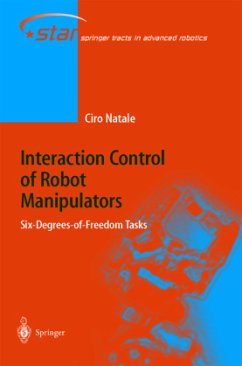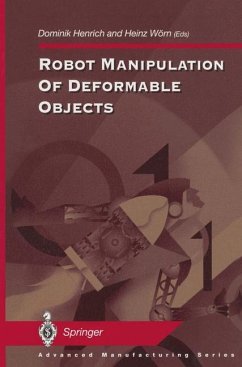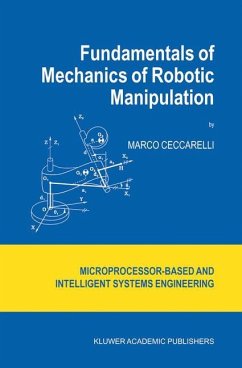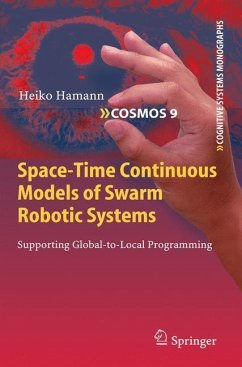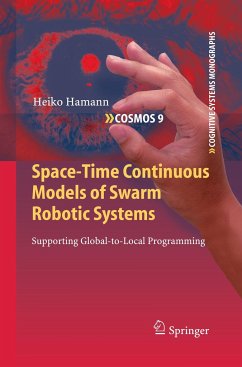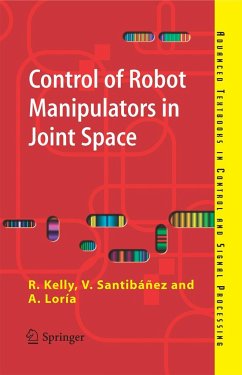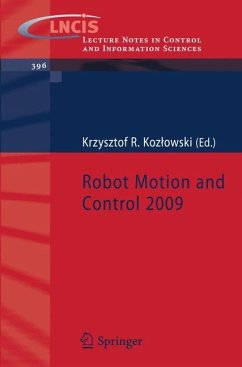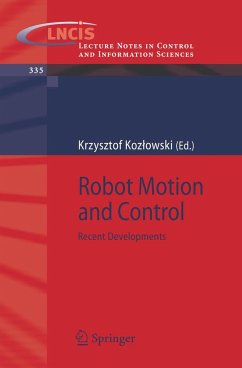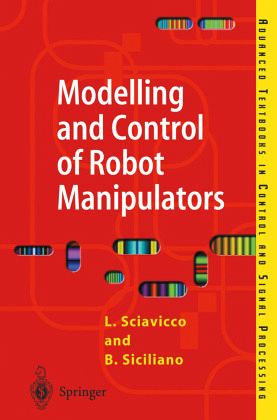
Modelling and Control of Robot Manipulators

PAYBACK Punkte
38 °P sammeln!
Fundamental and technological topics are blended uniquely and developed clearly in nine chapters with a gradually increasing level of complexity. A wide variety of relevant problems is raised throughout, and the proper tools to find engineering-oriented solutions are introduced and explained, step by step.Fundamental coverage includes: Kinematics; Statics and dynamics of manipulators; Trajectory planning and motion control in free space. Technological aspects include: Actuators; Sensors; Hardware/software control architectures; Industrial robot-control algorithms.Furthermore, established resea...
Fundamental and technological topics are blended uniquely and developed clearly in nine chapters with a gradually increasing level of complexity. A wide variety of relevant problems is raised throughout, and the proper tools to find engineering-oriented solutions are introduced and explained, step by step.
Fundamental coverage includes: Kinematics; Statics and dynamics of manipulators; Trajectory planning and motion control in free space. Technological aspects include: Actuators; Sensors; Hardware/software control architectures; Industrial robot-control algorithms.
Furthermore, established research results involving description of end-effector orientation, closed kinematic chains, kinematic redundancy and singularities, dynamic parameter identification, robust and adaptive control and force/motion control are provided.
To provide readers with a homogeneous background, three appendices are included on: Linear algebra; Rigid-body mechanics; Feedback control.
To acquire practical skill, more than 50 examples and case studies are carefully worked out and interwoven through the text, with frequent resort to simulation. In addition, more than 80 end-of-chapter exercises are proposed, and the book is accompanied by a solutions manual containing the MATLAB code for computer problems; this is available from the publisher free of charge to those adopting this work as a textbook for courses.
Fundamental coverage includes: Kinematics; Statics and dynamics of manipulators; Trajectory planning and motion control in free space. Technological aspects include: Actuators; Sensors; Hardware/software control architectures; Industrial robot-control algorithms.
Furthermore, established research results involving description of end-effector orientation, closed kinematic chains, kinematic redundancy and singularities, dynamic parameter identification, robust and adaptive control and force/motion control are provided.
To provide readers with a homogeneous background, three appendices are included on: Linear algebra; Rigid-body mechanics; Feedback control.
To acquire practical skill, more than 50 examples and case studies are carefully worked out and interwoven through the text, with frequent resort to simulation. In addition, more than 80 end-of-chapter exercises are proposed, and the book is accompanied by a solutions manual containing the MATLAB code for computer problems; this is available from the publisher free of charge to those adopting this work as a textbook for courses.



